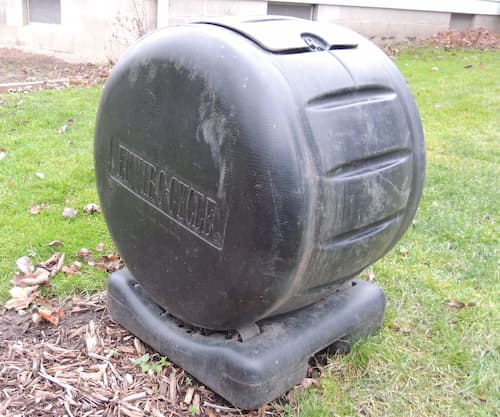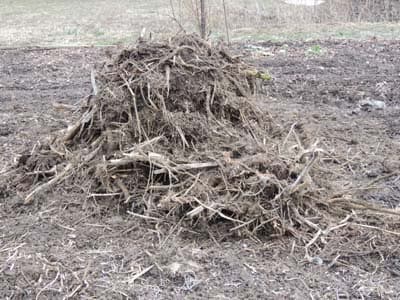Home Garden Organic Compost and Mulch

About Organic Compost and Mulch
Organic compost and garden mulch are two of a gardener’s best friends. They are beneficial for strong and healthy plants. They significantly increase the productivity of your garden. Their long-lasting benefits save you time and effort in many ways, in all types of gardens. There are many forms of compost and mulch. Some are organic, while others are artificial.
Be a soil saver….. start organic home garden composting today. Throw away, or drastically reduce, chemical fertilizers. What’s more, you can help save the environment and save money while doing so. However, it is important to note, that organic compost must be made of 100% organic materials. To put it another way, it’s not organic compost, if you use ANY inorganic materials.
Did you Know? Mushroom compost is a highly valued soil amendment. Do you know what mushroom compost is made of? Indeed, you might be surprised. Find out now
The Composter’s Motto: Let it rot!
Defining Organic Compost Versus Organic Mulch
What is Compost? Garden compost is comprised of decayed, organic plant waste materials. Its nutrient-rich composition acts as a natural, healthy, organic fertilizer for your plants. “Composting” is the process where organic plant matter rots and decays. Eventually, the material breaks down through the natural process of decomposition. Composting occurs over some time, aided by a combination of bacteria, air, worms, heat, and water.
Compost is made from organic matter. It can include weeds, grass clippings, hay, seaweed, garden waste, kitchen scraps, tree leaves, sawdust, or branches, to name a few. More on what to Compost.
Composting refers to the process of rotting or decomposing plant matter. It can also refer to animal manure, which is also composted. Manure almost always includes a mixture of straw, sawdust, or other bedding material, along with nutrient-rich animal manure. More on composting manure.
What is Mulch? Garden mulch is any material placed on top of the soil and around plants in your garden, as a protective covering for:
Reducing weeds around plants
Increasing or decreasing soil temperature
Retaining soil moisture around the plant
Creating a more attractive appearance
Many mulches feed plants as it decomposes.
Mulches can be organic such as compost, wood chips, grass clippings, pine needles, or hay. Or, they can be inorganic such as black plastic, newspaper, or even aluminum foil. The benefit of organic mulch is that it also enriches the soil. Inorganic mulches provide no benefit to the composition of your garden soil. However, some inorganic mulches, like plastic, can be harmful, leaching chemicals into your garden soil.
Do You Have Seplophobia? If you do, stay away from the compost pile!! This is the fear of decaying matter.
Composting Tip:
If you recently sprayed or applied chemicals to your lawn, do not use the grass clippings in composting. Those nasty chemicals are not organic. You certainly do not want it in your vegetable garden.

How to Make Organic Compost
Home garden composting is easy to do. Over the long term, there is not much you can do wrong to an organic compost pile (also called the compost heap) Gather up any organic matter and place it into a pile in a back corner of your yard or garden. It slowly decomposes over time. Even if you simply pile plant waste onto a heap in your yard or garden, it will decompose…..eventually. Most gardeners prefer to speed up the composting process and avoid the pitfalls of bad odor and attracting unwanted pests.
The key ingredients to successful garden composting are:
The right mix of materials contains Nitrogen (Greens) and Carbon (Browns). See What to Compost
Microbes and bacteria, which break down component materials.
Air
Moisture – should be 40% to 60%
Temperature
A well-maintained and active composting pile converts organic material to compost in as little as 30 days! Left to nature, a compost heap can take from several months to a year or more, to completely decompose. The byproduct of active decomposition is heat (and sometimes, odor). Have you ever seen a large pile of wood chips, at your local nursery in the middle of the winter? You may have observed it “smoking”. A composting pile can become so hot, that it ignites. This occurs in large, town, or industrial composting sites.
Composting Basics
If you are not using a composter or a compost tumbler, select an area near your garden, to create your compost pile.
Many people opt to close in their pile with fencing or acquire a home composter or bin. Home composters and bins are neat and more aesthetically pleasing than a pile of weeds and decaying grasses.
Add organic matter from your garden and yard.
Include vegetable and plant waste from your kitchen, including eggshells, coffee grounds, tea bags, spoiled vegetables, and fruits, etc.
Alternate layers of green and brown waste. This helps the composting process and aids in decomposition.
Keep the pile moist, but not wet.
Turn the pile over from time to time, to maximize air circulation to the bacteria and microbes that “eat” and convert your pile into rich compost. This is where composters and compost tumblers excel.
Use the compost after it has almost completely turned into soil. It is rich in nutrients and minerals.
Apply compost liberally around your plants as a mulch, or mix it into the soil.
Did you know? Along with the heat, the odor is another common by-product of the composting process. Keep odor to a minimum, by turning the pile regularly. One of the most common culprits is grass clippings piled too thickly. Mix all materials well.
Organic Compost Dos and Don'ts
Stir the pile frequently, to maximize air penetration.
Do not put animal remains meat, or fats in the pile. They attract unwanted “critters”.
Keep the pile moist.
Do not put grass clippings too thickly, they smell as they decay.
Chip or shred larger branches and plant stalks. The more surface area bacteria have to work, the quicker the decomposition.
Do not put diseased plants of any kind, into the compost pile. Plant disease over-winters in a pile, and re-infest your garden next year.
Speeding up the decomposition process
Stirring the pile speeds up the composting process. This is where compost tumblers excel.
Keep materials loose, to allow airflow.
Red worms speed up the composting process. Add them to your pile once, and they should reproduce in big numbers. You may not need to buy them again. Also, see Worm Compost
Important Composting Tip: Do not put worms into a composter… the heat inside is too hot for them and will not survive. They will find themselves comfortable in a compost heap on top of the ground. If the pile gets too hot, they will burrow into the soil and reemerge into the compost heap as it cools.
What Organic Compost Materials to Use?
In general, you can use most vegetable and plant matter. Including a wide variety of materials in your composter is a good thing. It increases the variety of minerals and micro-nutrients. This includes yard and garden waste, weeds, leaves, branches and twigs, and kitchen scraps. Use a mixture of green and brown matter. Green matter, like grass clipping, is high in nitrogen. Nitrogen gets the compost “cooking”, or decomposing.
For an extensive list of what compost materials to use, and what not to use, see What to Compost.
Compost, like garden soil, has a pH value that varies, depending on what you put into your composter. Learn about compost pH.
Please support our site. Shop for:
- rmmatthews100@hotmail.com
- 585-721-6528
- Rochester, NY
©1999-2026 GardenersNet.Com, All Rights Reserved

